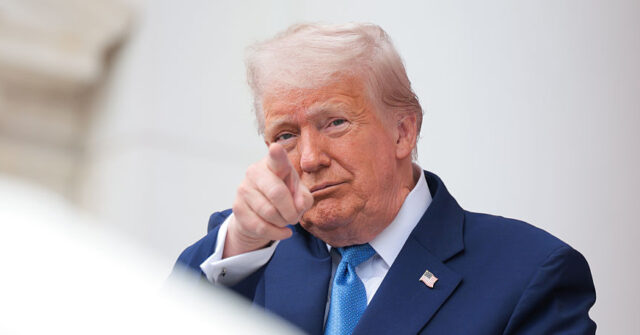The European Union rushed to set up meeting dates with U.S. negotiators after President Donald Trump fired a metaphorical shot across the bows, vowing a punitive 50 per cent tariff for what he said was deliberate “slow walking” of talks.
President Trump revealed the European Union — notoriously sclerotic even at the best of times — had reversed course on dragging their heels on trade deal negotiations, and were now beating a path to his door for talks. In a statement online, the President said: “I have just been informed that the E.U. has called to quickly establish meeting dates. This is a positive event, and I hope that they will, FINALLY, like my same demand to China, open up the European Nations for Trade with the United States of America.”
Resetting the U.S.-EU trade relationship would lead to Europeans being happy and successful if a trade deal can be agreed, he said, stating to this point the EU had been “slow walking” the process.
The change of heart from Brussels came after President Trump signalled his impatience with the pace of European negotiators earlier this month, announcing a 50-per-cent punitive tariff on European imports because talks were “going nowhere” and the bloc had been “very difficult to deal with”.
The President immediately rewarded Europe perking up, delaying the introduction of that tariff — which had been due to activate this week — by five weeks to give negotiations another chance. He said this had been because he’d received a personal call from European Union boss Ursula von der Leyen asking for an extension, and promising “that talks will begin rapidly”.
For the European Union, there is much to play for. Possible future blanket 50 per cent tariffs or not, it is already subject to a 25 per cent tariff on metals and cars. Yet the Union suffers from what Scot Bessent recently called a “collective action problem”, with any major decision taking months, not days.
This is essentially a feature of the European Union that underwrites its existence. The rights and interests of its smallest states are protected by long processes and outright vetoes that make rapid decision-making impossible, as otherwise they would be constantly steam-rollered by the handful of large, wealthy nations that run the Union.
Reckoning this system, being constitutionally baked in to the Union to keep it together, meant the European Union was fundamentally unfixable was one of several reasons the United Kingdom decided to leave the bloc almost a decade ago.
Read the full article here
